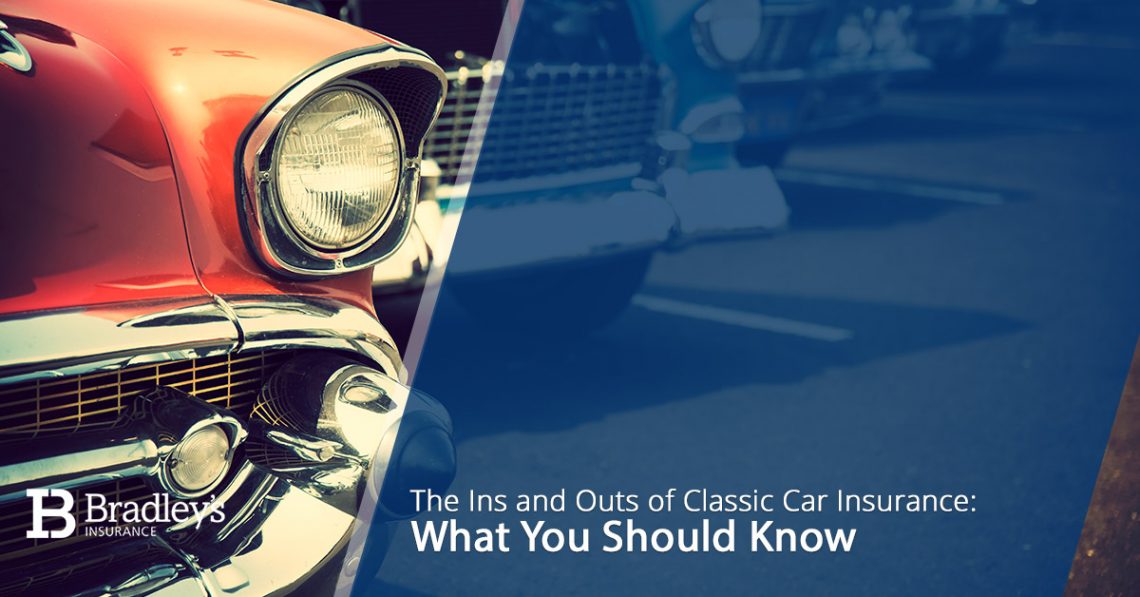For many car enthusiasts, owning a classic car is a dream come true. Not only do these vehicles offer a glimpse into the past, but they also provide an unparalleled driving experience. However, when it comes to insuring a classic car, things can get a bit tricky. Unlike regular cars, classic cars require specialized insurance coverage that takes into account their unique characteristics and values.

Classic cars are more than just vehicles – they’re collectibles, and as such, they require special care and attention. When shopping for car insurance for your classic car, there are several things you should know to ensure you’re getting the right coverage for your prized possession.
What is Considered a Classic Car?
Before we dive into the world of classic car insurance, let’s define what a classic car is. A classic car is typically a vehicle that’s at least 15 years old, although some insurance companies may consider vehicles as old as 10 years classic. These vehicles are also often limited in production, making them unique and valuable.
Some popular examples of classic cars include:
- Muscle cars like Ford Mustangs and Chevrolet Camaros
- Vintage sports cars like Jaguar E-Types and Mercedes-Benz 300SLs
- Classic American sedans like Cadillac Eldorados and Chrysler 300s
- Imports like Datsun Z-Cars and BMW 2002s
The Difference Between Classic Car Insurance and Regular Insurance
So, why can’t you just insure your classic car with a standard auto insurance policy? The answer is simple: classic cars require specialized coverage that takes into account their unique values and characteristics.
Regular auto insurance policies are designed for everyday driving and are typically based on the vehicle’s actual cash value (ACV) – which is the vehicle’s market value at the time of purchase. However, classic cars are often worth much more than their ACV, and may even appreciate in value over time.
Classic car insurance policies, on the other hand, are designed specifically for collectible vehicles. These policies typically offer coverage based on the vehicle’s agreed-upon value (AV), which is the value of the vehicle as agreed upon by the owner and the insurance company. This means that if your classic car is damaged or stolen, you’ll receive the AV – not just the ACV.
What to Look for in a Classic Car Insurance Policy
When shopping for classic car insurance, there are several things to look for in a policy:
- Agreed-upon value: As mentioned earlier, agreed-upon value coverage is essential for classic cars. This ensures that you’ll receive the full value of your vehicle if it’s damaged or stolen.
- Comprehensive and collision coverage: Like regular auto insurance policies, classic car insurance policies offer comprehensive and collision coverage to protect against damages such as theft, vandalism, and accidents.
- No mileage restrictions: Classic cars are often only driven on occasion, so no mileage restrictions are essential to ensure you can drive your vehicle without worrying about policy restrictions.
- Automatic coverage for spare parts: Classic cars often require spare parts to maintain their originality. Look for a policy that offers automatic coverage for these parts.
- Personalized service: Classic car insurance companies often have a specialized team that understands the needs of classic car owners.
Additional Tips and Considerations
Here are a few additional tips and considerations to keep in mind when shopping for classic car insurance:
- Get an appraisal: Before insuring your classic car, get an appraisal from a reputable classic car appraiser. This will help establish the agreed-upon value of your vehicle.
- Keep your vehicle in a secure location: Classic cars are often targets for thieves, so make sure to keep your vehicle in a secure location – such as a garage or storage unit.
- Drive defensively: Classic cars can be temperamental, so make sure to drive defensively – especially in traffic.




